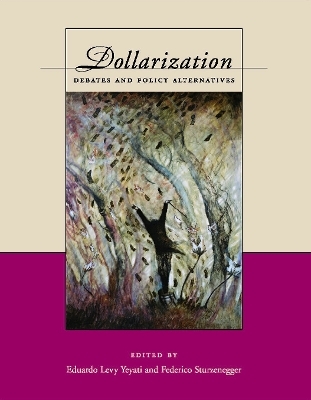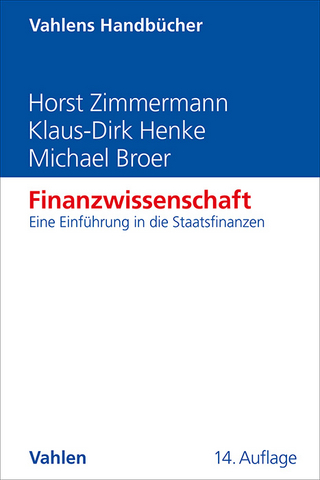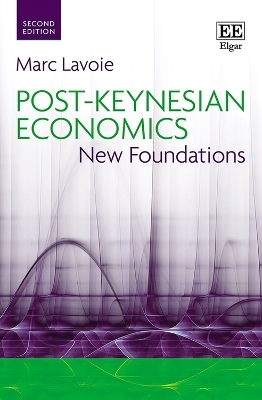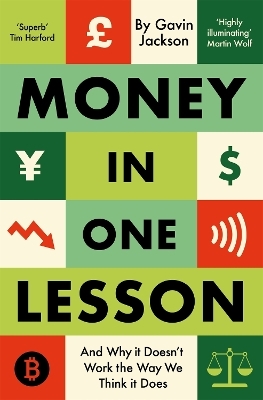
Dollarization
Debates and Policy Alternatives
Seiten
2002
MIT Press (Verlag)
978-0-262-12250-4 (ISBN)
MIT Press (Verlag)
978-0-262-12250-4 (ISBN)
- Keine Verlagsinformationen verfügbar
- Artikel merken
Theoretical and empirical analysis of de jure dollarization.
With the persistent instability of international financial markets, emerging economies are exploring new ways to reduce exposure to capital flow volatility. Some analysts argue that financially open economies are best served by more flexible regimes, while others argue in favor of extreme exchange rate regimes that have a strong commitment to a fixed parity or dispense with an independent currency. The successful launch of the euro has made more realistic the prospect of replacing a national currency with a strong foreign one. Recent examples include the adoption of the US dollar by Ecuador and El Salvador.
The introduction of a foreign currency as sole legal tender, termed full (de jure) dollarization, has been the center of much political and academic debate. This book provides a comprehensive analysis of the issues from both theoretical and empirical perspectives. The topics discussed include the role of balance sheet effects, the linkage between currency risk and country risk, the impact of dollarization on trade, financial integration and credibility, the implications of dollarization for the lender of last resort, and the institutional and political economy aspects of dollarization.
With the persistent instability of international financial markets, emerging economies are exploring new ways to reduce exposure to capital flow volatility. Some analysts argue that financially open economies are best served by more flexible regimes, while others argue in favor of extreme exchange rate regimes that have a strong commitment to a fixed parity or dispense with an independent currency. The successful launch of the euro has made more realistic the prospect of replacing a national currency with a strong foreign one. Recent examples include the adoption of the US dollar by Ecuador and El Salvador.
The introduction of a foreign currency as sole legal tender, termed full (de jure) dollarization, has been the center of much political and academic debate. This book provides a comprehensive analysis of the issues from both theoretical and empirical perspectives. The topics discussed include the role of balance sheet effects, the linkage between currency risk and country risk, the impact of dollarization on trade, financial integration and credibility, the implications of dollarization for the lender of last resort, and the institutional and political economy aspects of dollarization.
Eduardo Levy Yeyati is Director of the Center for Financial Research at Universidad Torucato Di Tella in Buenos Aires. Federico Sturzenegger is President of the Banco Ciudad de Buenos Aires. He is the coauthor, with Jeromin Zettelmeyer, of Debt Defaults and Lessons from a Decade of Crises (MIT Press, 2007).
| Reihe/Serie | Dollarization |
|---|---|
| Zusatzinfo | 31 illus. |
| Verlagsort | Cambridge, Mass. |
| Sprache | englisch |
| Maße | 178 x 229 mm |
| Gewicht | 726 g |
| Themenwelt | Wirtschaft ► Volkswirtschaftslehre ► Finanzwissenschaft |
| ISBN-10 | 0-262-12250-2 / 0262122502 |
| ISBN-13 | 978-0-262-12250-4 / 9780262122504 |
| Zustand | Neuware |
| Haben Sie eine Frage zum Produkt? |
Mehr entdecken
aus dem Bereich
aus dem Bereich
eine Einführung in die Staatsfinanzen
Buch | Hardcover (2024)
Vahlen (Verlag)
39,80 €
New Foundations
Buch | Softcover (2022)
Edward Elgar Publishing Ltd (Verlag)
64,75 €
and why it doesn't work the way we think it does
Buch | Softcover (2023)
Pan Books (Verlag)
13,70 €


